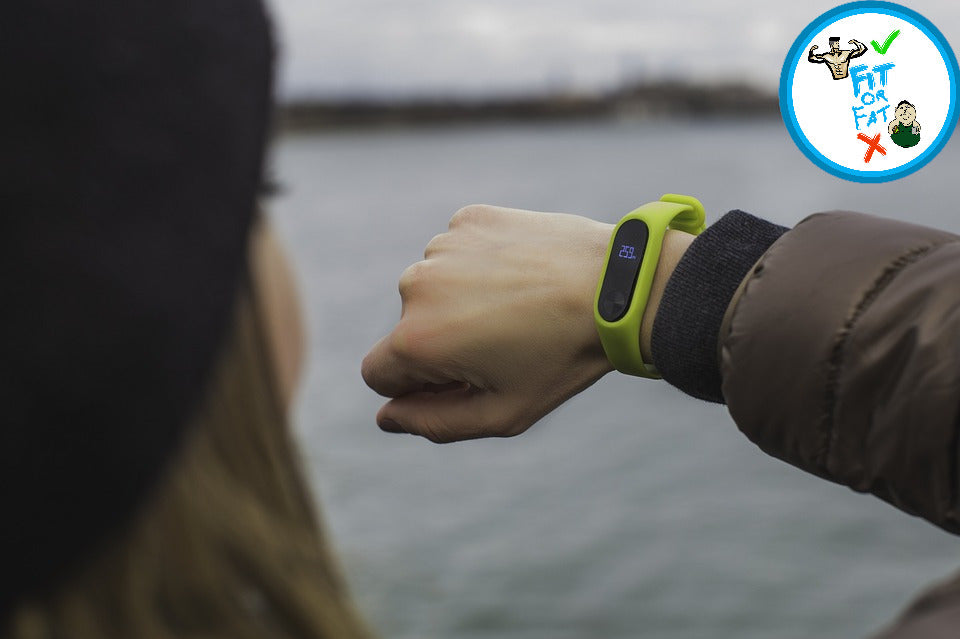
6 Reasons to Use a Fitness Tracker

You know, it wasn’t so long ago that fitness trackers were limited to your mum walking in to the living room with a pedometer clipped to her waist saying “Look! It counts your steps! What will they think of next?!”
These days fitness trackers have more functions than a swiss army knife, usually including a heart rate monitor, exercise programs, distance trackers, calorie trackers and many more, all with the intention of improving your health.
More often than not, they’ll use connectivity to your smart phone, meaning you can access data and analysis on your exercise sessions.
Fitness trackers are one of the fastest growing exercise accessories around today. Back in 2011, approximately 14 million people were wearing fitness trackers, with that number predicted to increase to over 170million in the present day.
Keeping Track
Well, this one is obvious. But fitness trackers are of course, great for tracking progress. Knowing how far you’ve gone from the starting point is vital in terms of keeping motivation.
And that’s why fitness trackers are essential for anyone looking get fit, as they keep a record of your exercise stats, so you can always go back and check just how far you’ve come since the beginning.
Ready Made Programs
Not everyone can afford a PT, and some people just don’t want someone barking orders at them.
For those discerning exercise enthusiasts, fitness trackers are absolutely ideal. Most trackers will offer ready made programs that vary in terms of goal, be it fat loss or general fitness.
This means you can follow a workout or overall schedule without the need to be that person in the gym with the notepad and pen, constantly jotting away what you’ve done and what you’re going to do.
It also means that whatever your level of fitness, trackers will usually have an exercise of program that caters to your fitness levels. that are tailored to cater for your current fitness level.

Goal Setting
One of the best ways to make sure you get the best results from your exercise routine is by setting achievable goals.
A big mistake for someone embarking on a journey from the couch to bronze god/goddess is to overreach when starting out. You’re not going to completely transform your body in a couple of weeks.
That’s why it’s important to set goals that you can actually achieve, which a fitness tracker will help you with. There’s nothing worse than failing to reach a goal and then letting that make you quit or take away motivation.
If you’re realistic, achieving these goals can be an excellent source of inspiration to keep going, if you know you’re improving, there’s more incentive to keep improving.
Getting in to a Routine/Habit
Another way in which fitness trackers can aid not just your exercise but also your general life, is the ability they have to help you with things such as sleep.
Research has shown doctors will not recommend such health technology to patients in an attempt to help manage their health on their own.
Sleep, diet and exercise are all conducive to a healthy, happy lifestyle, so being able to track all of them can have massive benefits in terms of establishing a routine that you enjoy that improves your health, as well as your general understanding of health.
Not only that, but most fitness trackers will recommend some changes to make to be healthier, meaning you can start to change the habits of a lifetime that have been weighing you down.

A lot of these above factors combine and result in the main thing we all need…
Motivation
If there’s one essential starting point of any sort of fitness journey or goal, it’s motivation, plain and simple.
You won’t ever accomplish anything, no matter how easy or hard without it. Exercise levels can often vary thanks to the hectic lives we lead, things like diet, sleep and activity patterns will be different across the weeks and months.
That’s why maintaining motivation is key, and that’s why a fitness tracker, that allows you to follow, analyse and correct or adjust such habits in order to meet your long term fitness goals.
Health
As we move forward and technology gets even better, even doctors are starting to report that patients want to incorporate fitness trackers data in to their health assessments, as well as qualified professionals looking towards starting to use fitness trackers to check up on the recovery of a patient from disease or surgery.
Not only that, but all of our previous points lend themselves to being healthy, which is course the ultimate end goal.
There’s solid research out there that a moderate tracking of what we do can improve our overall health.
The important thing too however, is knowing when tracking your health become obsessing over your health, which is in turn unhealthy in itself.
A fitness tracker can take care of most of that obsessing, so you don’t have too.
